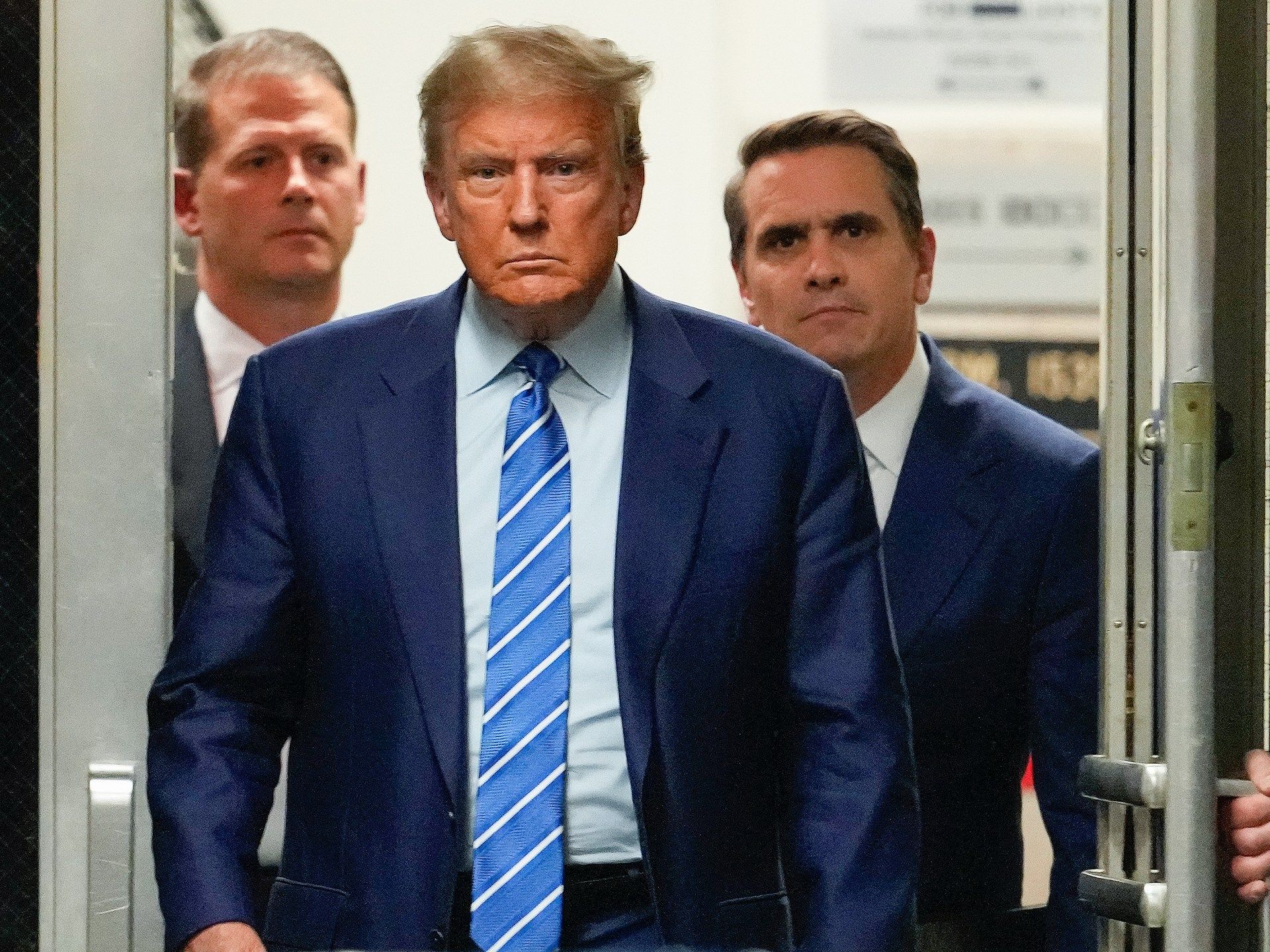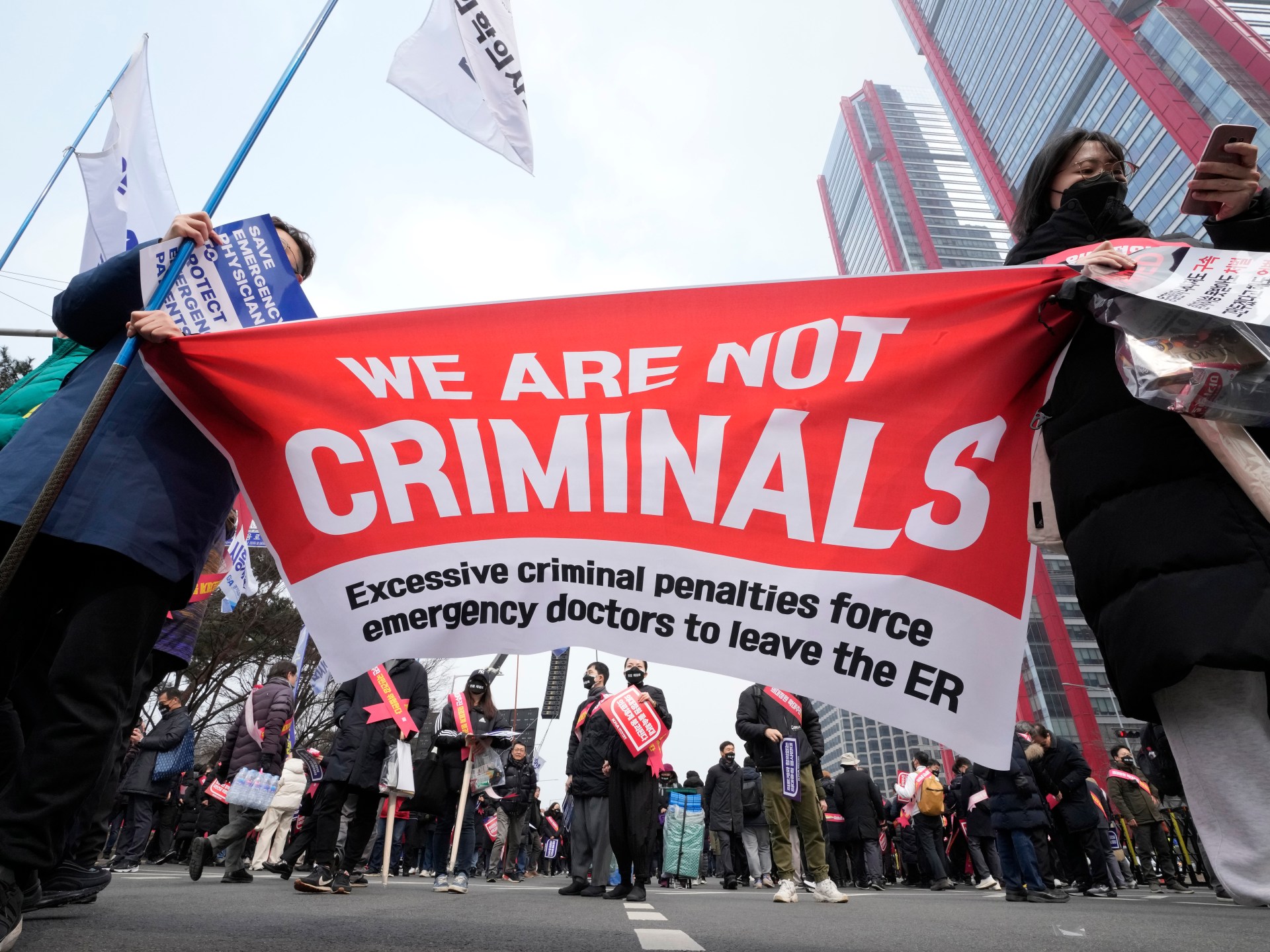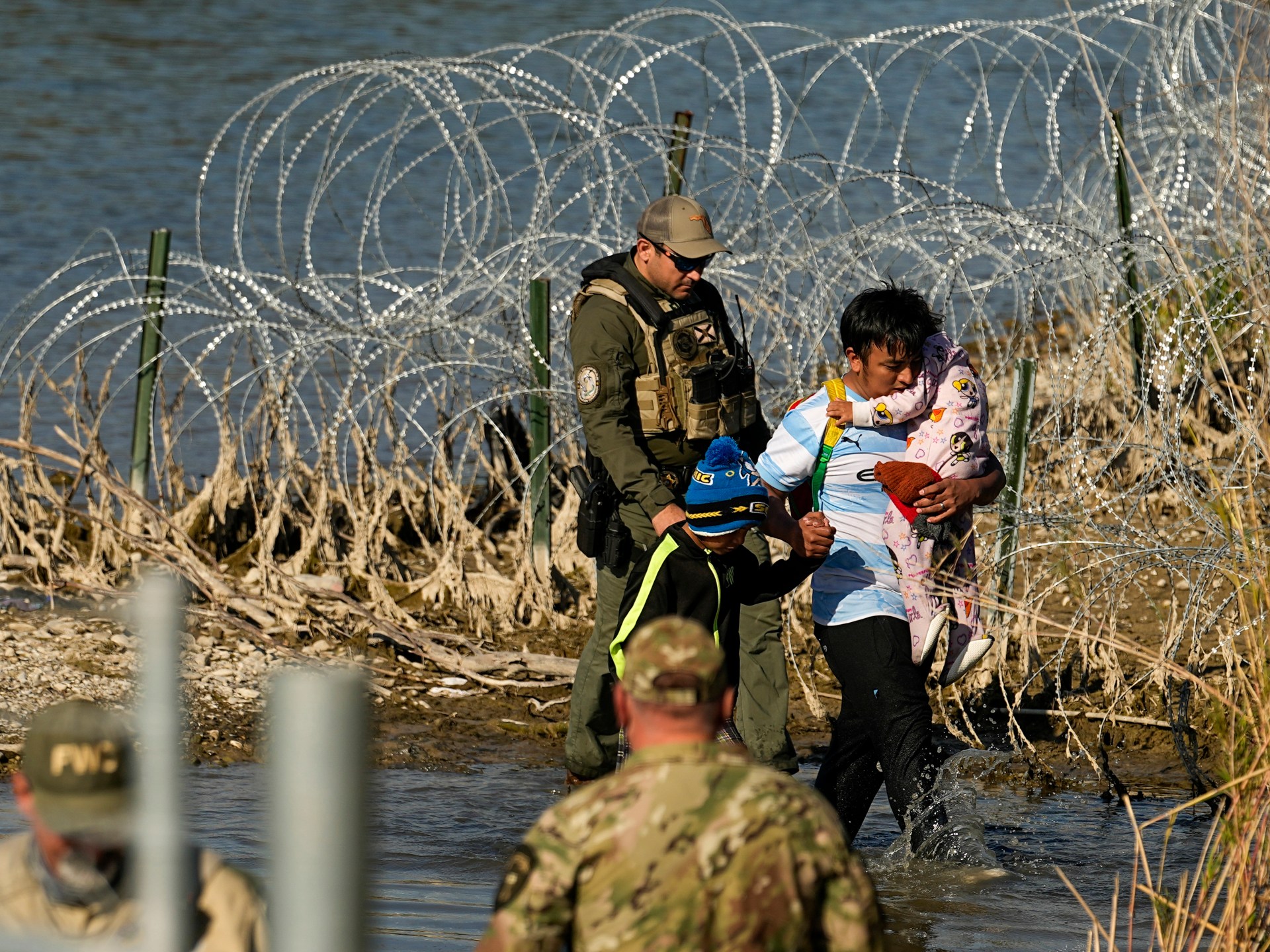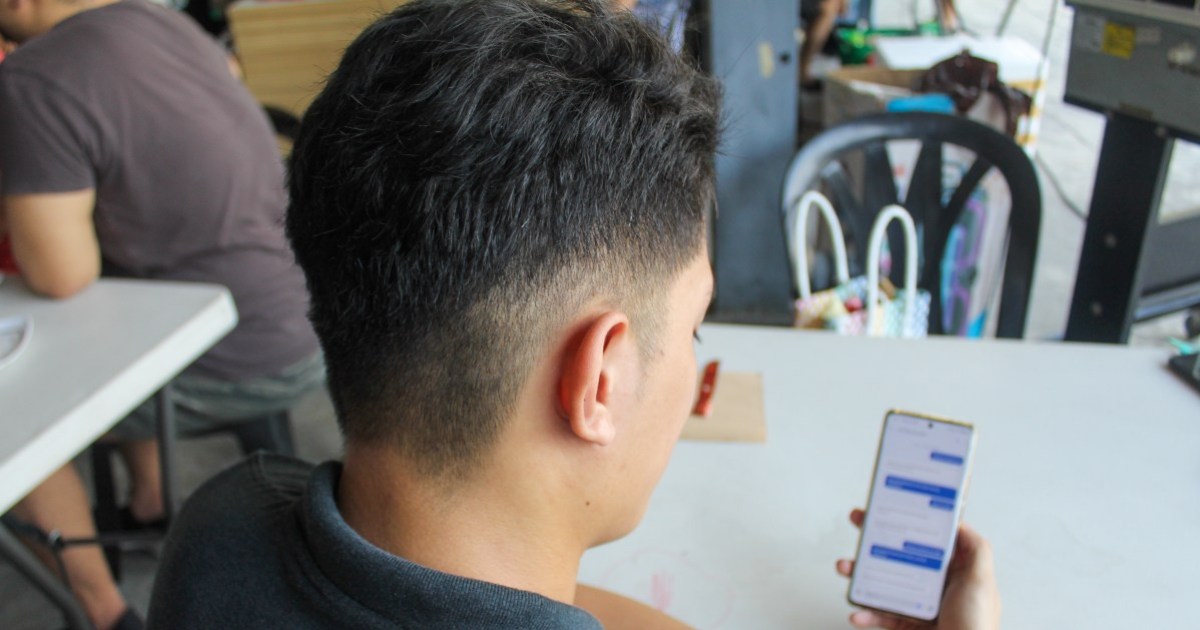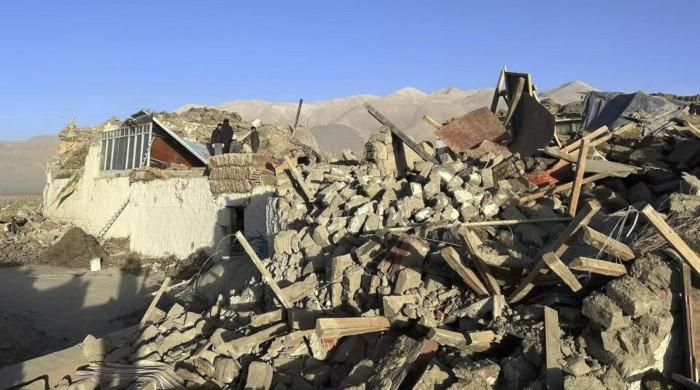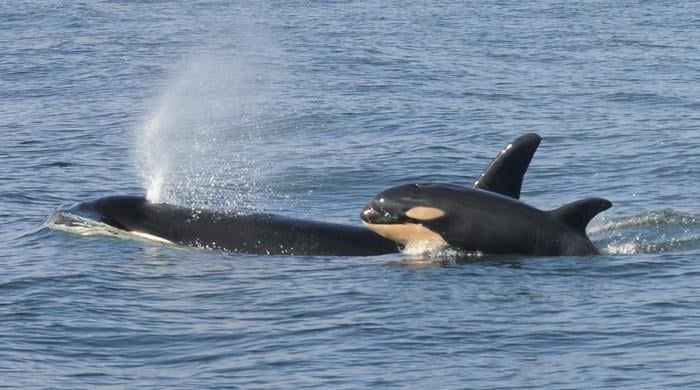Seven jurors have been selected to participate in the criminal trial of former US President Donald Trump in New York, setting a good pace for the process so far.
The second day of the historic trial concluded Tuesday with more haggling over jury selection, but despite early indications that the process could drag on for weeks, the day ended with more than a third of the jurors needed to be seated. .
Ultimately, 12 jurors and six alternates must be appointed before the court can hear opening arguments in the case. Trump faces 34 felony counts of falsifying business records related to money payments made to adult film star Stormy Daniels, and jurors are expected to weigh the charges against him.
But Tuesday's proceedings were filled with warnings about the need for justice, fairness and decorum in the courtroom, comments directed as much at potential jurors as at Trump himself.
A historic trial
The New York trial makes Trump the first American president, past or present, to be tried on criminal charges.
The trial is the result of one of four criminal charges Trump faces: two at the state level and two at the federal level.
Manhattan District Attorney Alvin Bragg first announced the New York charges in March 2023. Only on Monday, after months of delays and pretrial proceedings, did the trial begin in earnest.
The prosecution's case hinges on whether payments to Daniels to maintain his silence could constitute violations of state and federal election laws.
Daniels had alleged an affair with Trump, something he denied. And prosecutors hope to show that the hush payments were intended to curb bad press over the past few days. of the 2016 presidential election, which Trump ultimately won.
Jury selection began Monday, with prosecutors, defense attorneys and presiding Judge Juan Merchán weighing whether candidates could be impartial in evaluating the case.
But the first day of the trial highlighted the challenges of determining who should be chosen. An initial group of 96 jurors appeared in court on Monday and very quickly Judge Merchán dismissed more than half of them, after they indicated that they would have difficulty being impartial to the former president.
Therefore, on Monday not a single jury was seated. But Tuesday was a different story.
Impartiality issues
All potential jurors in the case were asked to complete a 42-part questionnaire, intended to learn details about their personal lives, media consumption and political leanings.
But to save time on Tuesday, Judge Juan Merchán asked jury candidates to express concerns about their ability to perform before completing the questionnaire.
Many (though not all) of those who raised concerns were dismissed.
Afterward, prosecutors and defense attorneys took turns asking potential jurors about themselves.
Deputy Prosecutor Joshua Steinglass also sought to dispel misconceptions about impartiality with his speech to the jury.
“Let's talk about the obvious: the defendant in this case is both the former president and a candidate for that office. “No one is suggesting that you can't be a fair juror because you've heard of Donald Trump,” Steinglass said.
“We don't expect you to have been living under a rock for the last eight years or the last 30 years.”
But both the prosecution and defense pressed jurors on whether they could keep their political views separate from the trial at hand.
In one case, Trump lawyer Todd Blanche pressed a Manhattan bookseller about his political leanings.
“What I think of President Trump outside this room has nothing to do with what happens in this room,” the bookseller responded. He continued: “I'm being asked to imbue my political views in a criminal case.”
Finally, the bookseller offered: “I'm a Democrat, so there you have it.” He was finally fired.
Social media posts under scrutiny
The judge also allowed Trump's legal team to question potential jurors about the social media posts.
One post, filed by the defense team, described a dance party in Manhattan where a potential juror allegedly celebrated Trump's defeat in the 2020 presidential election.
“This is clearly an anti-Trump event where she is out protesting and celebrating,” said Susan Necheles, one of Trump's lawyers.
She and her colleagues sought to demonstrate that even candidates who claimed to be impartial had declared otherwise on social media.
In another case, a potential juror was questioned about a Facebook post he made in 2017, with the message: “Get him out and lock him up!”
Judge Merchan quickly dismissed him: “I don't think I can allow this jury to stand.”
Trump reprimanded in court
Sitting at the defense table, Trump was seen reacting to potential jurors, even nodding approvingly when one candidate admitted to reading his book The Art of the Deal.
But Trump also visibly showed his disapproval of some of the potential jurors' responses, earning him a reprimand from Judge Merchan.
While one of the potential jurors was being questioned, Trump allegedly began muttering loudly to his lawyers. After the candidates left the room, Judge Merchan called him over.
“Before we continue, I just want to state something for the record,” Merchan said, speaking directly to Blanche, Trump's lawyer.
“Mr. Blanche, while the jury was at the podium, your client was saying something out loud.”
“I don't know what he was saying, but he was audible and he was gesturing and talking in the direction of the jury. I won't tolerate that. “I will not tolerate any jurors being intimidated in this courtroom.”
Jury intimidation has long been a concern in the case. In March, Judge Merchán approved a request from prosecutors asking that the names of jurors not be made public, to protect them from interference or retaliation.
In the courtroom they are only identified by numbers. However, prosecutors and the defense team can learn the identities of potential jurors.
Seven established juries
By the end of the day, seven jurors had been selected and sworn in.
Among them was a man from Ireland who said he likes to do “anything outdoors” and watches MSNBC and Fox News; a woman who works as an oncology nurse and enjoys taking her dog to the park; and a corporate lawyer who said he doesn't follow the news closely.
Also in the group were an IT worker, an English teacher and a software engineer. The seventh juror named was another attorney: a father of two from North Carolina.
As the seven took their places in the jury box, Judge Merchán instructed them: “This will be your permanent seat for the duration of the trial.”
While jury selection was initially expected to take several weeks, the rapid progress of Tuesday's election indicates that arguments could begin as early as next week. Merchan previously indicated that he expected the trial to last six weeks.
At the end of Tuesday's proceedings, another 96 potential jurors were brought into the courtroom and prepared for the selection process that would begin Wednesday.

